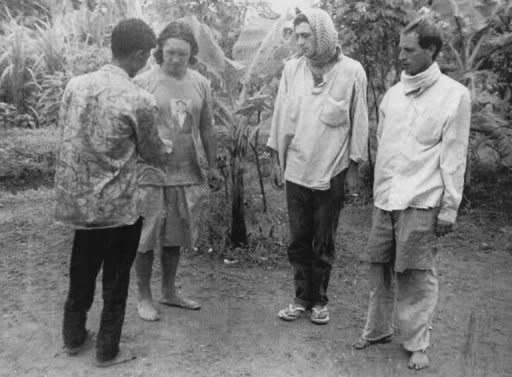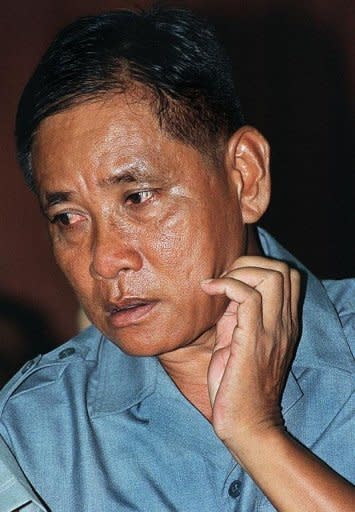Australia cleared over Khmer Rouge kidnap murder
Canberra was Wednesday cleared of blame over the kidnap and killing of an Australian backpacker in Cambodia by the Khmer Rouge, with a coroner supporting the decision not to pay a ransom. David Wilson, 29, was snatched from a train ambushed by Khmer Rouge militia between Phnom Penh and Sihanoukville on July 26, 1994, along with Briton Mark Slater and Frenchman Jean-Michel Braquet. The trio were held hostage for 100 days as their captors attempted to pressure the Australian, French and British governments into paying a ransom of US$50,000 in gold for each man. They were ultimately murdered as Khmer forces retreated from a military offensive on their southern Phnom Vor base, near Kampot, by the Royal Cambodian Armed Forces on or around September 28. Wilson died from a blunt force injury to the head. The other two men were shot. Their bodies were exhumed by Australian police in November 1994. An inquest into Wilson's death, launched in 1998, was halted for years while three senior members of the Khmer Rouge -- Nuon Paet, Chhouk Rin and Sam Bith -- were tried for the murders and their appeals exhausted. Victoria state deputy coroner Iain West ruled on Wednesday that the three Khmer leaders and a fourth unknown person who actually inflicted the head injury contributed to Wilson's death and cleared the Australian government of responsibility. "I find that David Wilson was brutally and tragically killed close to General Paet's house by members of the Khmer Rouge... on the orders of General Paet," said West. "I am satisfied there is no legitimate reason for criticising the Australian government for opposing or not cooperating in the payment of a ransom," he added. "The principle behind not doing so is sound and internationally acknowledged." Wilson's family had criticised Canberra for refusing to pay the ransom and accused authorities of failing to work hard enough to secure his release by threatening to withdraw aid or by launching a recovery operation. But West said "exceptionally difficult circumstances" confronted the three governments working for the hostages' release, with a "complex civil war with shifting alliances and unstable social, economic and political dynamics". "In these circumstances it was appropriate that the responsibility for conducting negotiations with the rebel group remain an internal matter for Cambodia," West said. An inquest into Slater's death has been completed but Braquet's inquest is still ongoing. Up to two million Cambodians -- almost one-quarter of the country's population -- died under Pol Pot's hardline communist Khmer Rouge regime which ruled through executions and forced labour between 1975-79. An invasion by neighbouring Vietnam formally ended Khmer Rouge rule but the group still controlled or threatened about 60 percent of Cambodia when Wilson was abducted.



